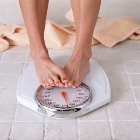If you ask nearly anyone about their personal goals, you will find weight loss among their top three.
 The weight loss industry has a life of its own, spawning thousands of products each year, along with magazines, reality television shows, foods, books and programmes.
The weight loss industry has a life of its own, spawning thousands of products each year, along with magazines, reality television shows, foods, books and programmes.
If you struggle to lose weight, there may be a number of factors at play. Before embarking on any weight loss programme, see your health professional. It is also a good idea to include a blood test and hormone check at this visit.
You need to be honest with yourself. Would you like to lose weight because it is actually necessary, or an automatic response?
If you truly need to lose a bit of weight, what is stopping you? Is it willpower? Lifestyle? Environment? An injury or illness? Set a realistic goal and put a realistic timeline on it. The desire to lose weight is often in response to an upcoming event; a wedding, reunion or holiday. These are external goals, rather than a desire fuelled from inside you, which starts you off on the wrong foot.
To truly make a change to your health and wellbeing, you need to be internally motivated and understand what it is that has caused your weight to creep up.
With each birthday, our metabolism slows a little. This is an irksome, but inevitable, fact of life. To maintain weight as you age, you must change the way you do things.
Eat foods that have a high nutritional value, rather than a high number of calories. Be sensible about portion sizes and don't cut anything entirely out of your diet.
Portions
As a rule of thumb, imagine your plate divided into quarters at lunch or dinnertime.
One quarter should contain a source of lean protein (eggs, fish, lean red meat, pork or chicken). A protein serving should be the size of your palm and the thickness of your little finger.
One quarter should contain a source of carbohydrate, ideally as unrefined as possible; a baked potato, quinoa, brown or black rice or assorted vegetables that grow beneath the ground.
Then, have a great time filling half of your plate with vibrant fresh fruit or vegetables and enjoy!
Eat small portions regularly
Rather than three large meals a day, split your food into six smaller portions. It will keep your metabolism fired up, help prevent the sleepy feeling after a large meal and improve your quality of sleep.
Speaking of sleep
Research has shown that you are most likely to gain weight if you don't get enough sleep. When you are tired, your body will crave food (often the naughty stuff!) as a means of keeping your energy up. Aim to eat dinner by 7pm and go to bed at a regular hour.
Get moving
Diet and exercise are a lethal combination when it comes to weight loss. One will not work without the other. Vary your exercise regime so you don't get bored and your body doesn't become complacent. Lean muscle tissue burns far more calories at rest than fat, so once you start creating it, you will burn more calories even in your sleep! You don't need to be bulked up or muscly, just make sure you walk briskly several times a week, or swim, or walk up stairs, or practice yoga or do basic exercises using your body weight – it all counts.
Resisting change
Your body craves routine and will initially resist change. Acknowledge this and be the boss! When you first reduce portion sizes, it will scream, "I'm hungry", when you first exercise, it will say, "I'm tired". Persevere. Teach that voice to say, "I'm full thank you," and "Let's go".
Make small changes, for example eat one less piece of toast at breakfast, change your large takeaway coffee to a small one, share a small icecream at the movies rather than ordering a large one all for yourself. Small changes add up. Once you start seeing results, you will be inspired to work harder.
Keep away from the fads
Beware any diet or programme that bans anything completely from your diet (eg carbs, sugar, fat, alcohol). The best way to manage your weight is to be able to enjoy a little of everything – this reduces cravings and increases your chances of success.
When you lose weight, congratulate yourself for achieving a goal, it is not a cue to fall back into old habits. A healthy weight loss is about 500gm per week.
Water water everywhere
Water helps flush toxins from your system. Just 3% dehydration can lead to a 20% decrease in brain function, so don't wait until you're thirsty. Sip away on water or herbal tea throughout the day.
Eat your emotions
A large part of weight loss is psychological. Try and rethink labeling foods as 'good' or 'bad'. Avoid doing the same to yourself. If you are sad or angry and find yourself heading for a packet of biscuits, redirect. Go for a walk, breath in some fresh air, get some perspective and eat when you are hungry. You will feel doubly better for not having sabotaged your weight loss programme and for getting some extra exercise.
Exercise will also help elevate your mood.
Only you can make the changes. Don't wait until you are panicking about wearing togs or having an extra chin in a family photograph. Start today. There are so many benefits to maintaining a healthy weight. Start enjoying them!








Join the Discussion
Type out your comment here:
You must be logged in to post a comment.